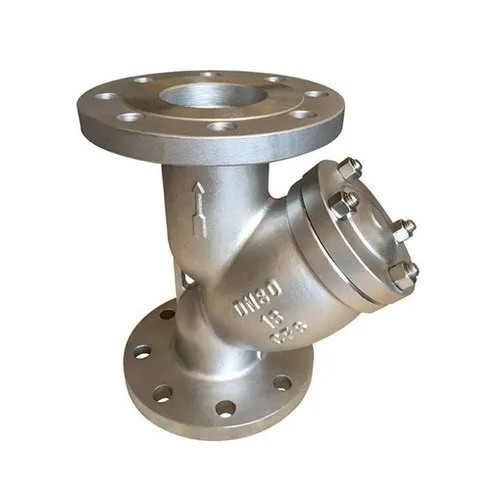Understanding the Importance and Uses of Forged Flanges in Industrial Applications
Understanding Forged Flanges Applications, Types, and Benefits
Flanges are integral components used in piping systems to connect pipes, valves, pumps, and other equipment. Among the various types of flanges, forged flanges are highly regarded for their strength, durability, and reliability. In this article, we will explore what forged flanges are, their applications, types, and the benefits they offer in various industrial settings.
What Are Forged Flanges?
Forged flanges are made through a forging process, where a solid piece of metal is shaped into the desired form under high pressure and temperature. This manufacturing process aligns the metal's grain structure, enhancing the mechanical properties such as tensile strength and resistance to impact. As a result, forged flanges are preferred in environments where high pressure and extreme temperatures are commonplace, such as in oil and gas, petrochemical, and power generation industries.
Different Types of Forged Flanges
There are several types of forged flanges, each designed for specific applications. The most common types include
1. Blind Flanges These flanges do not have a hole in the center and are used to seal off the end of piping systems. They are essential for allowing access to pipeline systems for cleaning and inspection.
2. Slip-On Flanges These flanges easily slip over the pipe and are welded both inside and outside to provide a secure connection. They are commonly used in low-pressure applications.
3. Weld Neck Flanges Featuring a long neck that allows for a secure and robust welding connection to the pipe, weld neck flanges are suitable for high-pressure applications.
4. Socket Weld Flanges These flanges are designed for smaller diameters and allow the pipe to be inserted into the flange socket. They are typically used in high-pressure systems.
5. Threaded Flanges These flanges have internal threads that allow for connection to a pipe with external threads. They are often used in situations where welding is not feasible.
6. Lap Joint Flanges Typically paired with a stub end, these flanges offer flexibility in alignment and are commonly used in applications requiring easy disassembly.
Applications of Forged Flanges
Forged flanges find applications in diverse industries due to their strength and reliability. Here are some predominant areas where they are utilized
forged flanges

- Oil and Gas Industry These flanges are essential for pipe systems in extraction and refining processes, where they must withstand high pressures and corrosive environments.
- Petrochemical Plants Forged flanges are critical components in the pipelines that transport chemicals and other hazardous materials.
- Power Generation In power plants, forged flanges are used in both steam and gas pipelines, where safety and reliability are paramount
.- Marine Applications Due to their corrosion resistance, forged flanges are employed in various marine applications, from shipbuilding to offshore drilling operations.
Benefits of Forged Flanges
Choosing forged flanges over other types has several advantages
1. Enhanced Strength The forging process enhances the metal’s grain structure, providing superior strength and durability that withstands extreme conditions.
2. Reliability Their ability to handle high pressure and temperature ensures that forged flanges maintain a secure connection without the risk of failure.
3. Versatile Applications With various types available, forged flanges can be tailored to suit different industrial requirements, making them highly versatile.
4. Lower Maintenance Costs The durability of forged flanges translates to longer life spans and reduced need for maintenance and replacements, which can lead to cost savings for companies.
5. Customizability Manufacturers can produce forged flanges in different materials, sizes, and configurations to meet specific industry standards and requirements.
Conclusion
In conclusion, forged flanges are critical components in modern piping systems, offering exceptional strength, durability, and reliability across various industries. From the oil and gas fields to power generation facilities, the benefits of using forged flanges cannot be understated. As industries continue to evolve and demand higher standards, forged flanges will remain a vital choice for ensuring the integrity and efficiency of piping systems. Understanding their types and applications allows engineers and procurement professionals to make informed decisions, promoting safety and functionality in complex industrial operations.
-
The Key to Fluid Control: Exploring the Advantages of Ball Valves in Industrial SystemsNewsJul.09,2025
-
The Versatile World of 1, 2, and 3 Piece Ball ValvesNewsJul.09,2025
-
Stainless Steel Ball Valves: The Ideal Choice for Efficient Flow ControlNewsJul.09,2025
-
Optimizing Fluid Control with Ball Float ValvesNewsJul.09,2025
-
Manual Gate Valves: Essential for Control and EfficiencyNewsJul.09,2025
-
Everything You Need to Know About Butterfly ValvesNewsJul.09,2025
-
The Versatility of Wafer Type Butterfly ValvesNewsJul.08,2025




